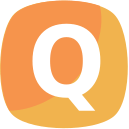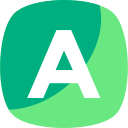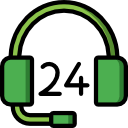Question DetailsNormal
$ 20.00
TEST BANK FOR Pharmacology for Nurses A Pharmacologic Approach 5th Edition By Adams
- From Health Care, Pharmacology
Question posted by

- Coursemerits
- Rating : 0
- Grade : No Rating
- Questions : 0
- Solutions : 123
- Blog : 0
- Earned : $14.00

TEST BANK FOR Pharmacology for Nurses A Pharmacologic Approach 5th Edition By Adams
Available Answer
$ 20.00
[Solved] TEST BANK FOR Pharmacology for Nurses A Pharmacologic Approach 5th Edition By Adams
- This solution is not purchased yet.
- Submitted On 04 Mar, 2022 01:25:56
Answer posted by

- Coursemerits
- Rating : 0
- Grade : No Rating
- Questions : 0
- Solutions : 123
- Blog : 0
- Earned : $14.00

TEST BANK FOR Pharmacology for Nurses A Pharmacologic Approach 5th Edition By Adams Exam 1 CHPT 1, 2, 3, 4, 5, 12, 13, 20, 21 Adams, Pharmacology for Nurses: A Pathophysiologic Approach, 5/E Chapter 1 Question 1 Type: MCMA The nurse is teaching a pharmacology class to student nurses. What does the nurse include as key events in the history of pharmacology? Note: Credit will be given only if all correct choices and no incorrect choices are selected. Standard Text: Select all that apply. 1. Initial drugs included morphine, cocaine, and penicillin. 2. Early researchers used themselves as test subjects. 3. The initial intention of pharmacology was to relieve human suffering. 4. Modern pharmacology began in the early 1600s. 5. Pharmacologists synthesized drugs in the laboratory in the twentieth century. Correct Answer: 2,3,5 Rationale 1: Initial drugs isolated from complex mixtures included morphine, colchicines, curare, and cocaine, but not penicillin. Rationale 2: Some early researchers, such as Friedrich Serturner, used themselves as test subjects. Rationale 3: The early roots of pharmacology included the application of products to relieve human suffering. Rationale 4: Modern pharmacology began in the early 1800s, not the 1600s. Rationale 5: By the twentieth century, pharmacologists could synthesize drugs in the laboratory. Global Rationale: The early roots of pharmacology included the application of products to relieve human suffering, and early researchers used themselves as test subjects. Initial drugs included morphine, colchicines, curare, and cocaine, but not penicillin. Modern pharmacology began in the early 1800s, not the 1600s. By the twentieth century, pharmacologists could synthesize drugs in the laboratory. Cognitive Level: Applying Exam 1 CHPT 1, 2, 3, 4, 5, 12, 13, 20, 21 Client Need: Physiological Integrity Client Need Sub: Pharmacological and Parenteral Therapies QSEN Competencies: I.A.1 Integrate understanding of multiple dimensions of patient centered care: patient/family/community preferences, values; coordination and integration of care; information, communication, and education; physical comfort and emotional support; involvement of family and friends; and transition and community. AACN Essential Competencies: I.7 Integrate the knowledge and methods of a variety of disciplines to inform decision making. NLN Competencies: Knowledge and Science: Integration of knowledge from nursing and other disciplines. Nursing/Integrated Concepts: Nursing Process: Implementation Learning Outcome: 1-1 Identify key events in the history of pharmacology. MNL Learning Outcome: 1.1.1 Apply basic concepts related to pharmacology. Page Number: 3 Question 2 Type: MCSA The student nurse asks the nursing instructor why he needs to take anatomy and physiology, as well as microbiology, when he only wants to learn about pharmacology. What is the best response by the instructor? 1. "Because pharmacology is an outgrowth of those subjects." 2. "You must learn all, since those subjects, as well as pharmacology, are part of the curriculum." 3. "Knowledge of all those subjects will prepare you to provide the best patient care, including the administration of medications." 4. "Because an understanding of those subjects is essential to understanding pharmacology." Correct Answer: 4 Rationale 1: Pharmacology is an outgrowth of anatomy, physiology, and microbiology, but this is not the most complete reason for the nurse to learn them. Rationale 2: The nurse must learn anatomy, physiology, and microbiology to understand pharmacology, not because they are part of the curriculum. Rationale 3: Knowledge of anatomy, physiology, and microbiology prepares the nurse to understand pharmacology, not to provide care such as administration of medications. Exam 1 CHPT 1, 2, 3, 4, 5, 12, 13, 20, 21 Rationale 4: It is essential for the nurse to have a broad knowledge base of many sciences in order to learn pharmacology. Global Rationale: It is essential for the nurse to have a broad knowledge base of many sciences in order to learn pharmacology. The nurse must learn anatomy, physiology, and microbiology to understand pharmacology, not because they are part of the curriculum. Pharmacology is an outgrowth of anatomy, physiology, and microbiology, but this is not the reason for the nurse to learn them. Knowledge of anatomy, physiology, and microbiology prepares the nurse to understand pharmacology, not to provide care such as administration of medications. Cognitive Level: Applying Client Need: Physiological Integrity Client Need Sub: Pharmacological and Parenteral Therapies QSEN Competencies: I.A.1 Integrate understanding of multiple dimensions of patient centered care: patient/family/community preferences, values; coordination and integration of care; information, communication, and education; physical comfort and emotional support; involvement of family and friends; and transition and community. AACN Essential Competencies: I.7 Integrate the knowledge and methods of a variety of disciplines to inform decision making. NLN Competencies: Knowledge and Science: Integration of knowledge from nursing and other disciplines. Nursing/Integrated Concepts: Nursing Process: Implementation Learning Outcome: 1-2 Explain the interdisciplinary nature of pharmacology, giving an example of how knowledge from different sciences impacts the nurse’s role in drug administration. MNL Learning Outcome: 1.1.1 Apply basic concepts related to pharmacology. Page Number: 3 Question 3 Type: MCMA The nursing instructor is teaching a pharmacology class to student nurses. The current focus is pharmacology and therapeutics. The nursing instructor determines that learning has occurred when the students make which comments? Note: Credit will be given only if all correct choices and no incorrect choices are selected. Standard Text: Select all that apply. 1. "Pharmacology is the development of medicines." 2. "Pharmacology is the study of medicines." Exam 1 CHPT 1, 2, 3, 4, 5, 12, 13, 20, 21 3. "Therapeutics relates to drug use to treat suffering." 4. "Therapeutics is the study of drug interactions." 5. "Pharmacology is the study of drugs to prevent disease." Correct Answer: 2,3,5 Rationale 1: Pharmacology is not the development of medicines Rationale 2: Pharmacology is the study of medicines. Rationale 3: Therapeutics is the use of drugs in the treatment of suffering. Rationale 4: Therapeutics is not related to study of drug interactions. Rationale 5: Pharmacotherapy is the application of drugs for the purpose of disease prevention. Global Rationale: Pharmacology is the study of medicines and the use of drugs to relieve suffering. Therapeutics is the study of disease prevention and treatment of suffering. Pharmacotherapy is the application of drugs for the purpose of disease prevention. Cognitive Level: Applying Client Need: Physiological Integrity Client Need Sub: Pharmacological and Parenteral Therapies QSEN Competencies: I.A.1 Integrate understanding of multiple dimensions of patient centered care: patient/family/community preferences, values; coordination and integration of care; information, communication, and education; physical comfort and emotional support; involvement of family and friends; and transition and community. AACN Essential Competencies: I.7 Integrate the knowledge and methods of a variety of disciplines to inform decision making. NLN Competencies: Knowledge and Science: Integration of knowledge from nursing and other disciplines. Nursing/Integrated Concepts: Nursing Process: Evaluation Learning Outcome: 1-3 Compare and contrast therapeutics and pharmacology. MNL Learning Outcome: 1.1.1 Apply basic concepts related to pharmacology. Page Number: 4 Question 4 Type: MCSA The nurse administers a vaccine to a child. What is the best understanding of the nurse as it relates to the manufacture of this vaccine? Exam 1 CHPT 1, 2, 3, 4, 5, 12, 13, 20, 21 1. The vaccine is produced by natural plant extracts in the laboratory. 2. The vaccine is naturally produced in animal cells or microorganisms. 3. The vaccine is produced by a combination of animal and plant products. 4. The vaccine is most commonly synthesized in a laboratory. Correct Answer: 2 Rationale 1: Vaccines are not produced by natural plant extracts. Rationale 2: Vaccines are naturally produced in animal cells, microorganisms, or by the body itself. Rationale 3: Vaccines are not produced by a combination of animal and plant products. Rationale 4: Vaccines are not synthesized in a laboratory. Global Rationale: Vaccines are naturally produced in animal cells, microorganisms, or by the body itself. Vaccines are not synthesized in a laboratory. Vaccines are not produced by natural plant extracts. Vaccines are not produced by a combination of animal and plant products. Cognitive Level: Applying Client Need: Physiological Integrity Client Need Sub: Pharmacological and Parenteral Therapies QSEN Competencies: III.A.1 Demonstrate knowledge of basic scientific methods and processes. AACN Essential Competencies: IX.3 Implement holistic, patient-centered care that reflects an understanding of human growth and development, pathophysiology, pharmacology, medical management and nursing management across the health-illness continuum, across lifespan, and in all healthcare settings. NLN Competencies: Knowledge and Science: Integration of knowledge from nursing and other disciplines. Nursing/Integrated Concepts: Nursing Process: Evaluation Learning Outcome: 1-4 Compare and contrast traditional drugs, biologics, and complementary and alternative medicine therapies. MNL Learning Outcome: 1.1.1 Apply basic concepts related to pharmacology. Page Number: 4 Question 5 Type: MCSA Exam 1 CHPT 1, 2, 3, 4, 5, 12, 13, 20, 21 The older adult client has gastrointestinal bleeding. The client says to the nurse, "I don't understand this. All I did was take ibuprofen (Advil) for my arthritis." Which plan would be best as it relates to the nurse's education of this client? 1. A plan to teach the client to use drugs that bypass the gastrointestinal system, like topical drugs 2. A plan to teach the client to substitute safer drugs like acetaminophen (Tylenol) 3. A plan to teach the client to obtain physician approval prior to the use of over-the-counter (OTC) medications 4. A plan to teach the advantages and disadvantages of ibuprofen (Advil) Correct Answer: 4 Rationale 1: The use of topical drugs may be an option, but the drug a client needs may not be available in this form. Rationale 2: Substitution of other drugs may be beneficial, but this cannot be done in all situations. Rationale 3: It is not a realistic plan to expect clients to contact their physician prior to taking any over-the-counter (OTC) medication. Rationale 4: Since elderly clients account for the use of about 40% of all over-the-counter (OTC) medications, it is essential for the nurse to teach clients about the advantages, and the disadvantages, of these medications. Global Rationale: Since older adult clients account for the use of about 40% of all over-thecounter (OTC) medications, it is essential for the nurse to teach clients about the advantages, and the disadvantages, of these medications. Substitution of other drugs may be beneficial, but this cannot be done in all situations. The use of topical drugs may be an option, but the drug a client needs may not be available in this form. It is not a realistic plan to expect clients to contact their physician prior to taking any over-the-counter (OTC) medication. Cognitive Level: Applying Client Need: Physiological Integrity Client Need Sub: Pharmacological and Parenteral Therapies QSEN Competencies: III.A.1 Demonstrate knowledge of basic scientific methods and processes. AACN Essential Competencies: II.7 Promote factors that create a culture of safety and caring. NLN Competencies: Context and Environment: Health promotion/disease prevention. Nursing/Integrated Concepts: Nursing Process: Planning Learning Outcome: 1-9 Outline the major differences between prescription and over-thecounter drugs. Exam 1 CHPT 1, 2, 3, 4, 5, 12, 13, 20, 21 MNL Learning Outcome: 1.1.1 Apply basic concepts related to pharmacology. Page Number: 6 Question 6 Type: MCSA The nursing instructor tea...
Other Similar Questions

NUMBE...
Health and Health Care Delivery in Canada 2nd Edition Test Bank
Chapter 1: The History of Health Care in Canada
MULTIPLE CHOICE
1. When and where was Canada’s first medical school established?
a. Saskatoon, in 1868
b. Ottawa, in 1867
c. Montreal, in 1825
d. Kingston, in 1855
ANS: C...

Acade...
ATI Pharmacology Proctored Exam Test Bank
ATI Pharmacology Proctored Exam Test Bank
ATI Pharmacology Proctored Exam Test Bank
ATI Pharmacology Proctored Exam Test Bank...

HESIS...
Seidel's Guide to Physical Examination 9th Edition Ball Test Bank
1. Which question would be considered a ―leading question?‖
a. ―Please describe any associated symptoms with your headaches?‖
b. ―You don't get headaches often, do you?‖
c. ―What activities affect the severit...

QuizM...
Test Bank to accompany Work, Industry, and Canadian Society, Seventh Edition
Test Bank to accompany Work, Industry, and Canadian Society, Seventh Edition
By Harvey J. Krahn, Karen D. Hughes, and Graham S. Lowe ...

QuizM...
TEST BANK FOR MACIONIS/GERBER SOCIOLOGY NINTH CANADIAN EDITION
TEST BANK FOR
MACIONIS/GERBER SOCIOLOGY NINTH CANADIAN EDITION
...
The benefits of buying study notes from CourseMerits

Assurance Of Timely Delivery
We value your patience, and to ensure you always receive your homework help within the promised time, our dedicated team of tutors begins their work as soon as the request arrives.
Best Price In The Market
All the services that are available on our page cost only a nominal amount of money. In fact, the prices are lower than the industry standards. You can always expect value for money from us.


